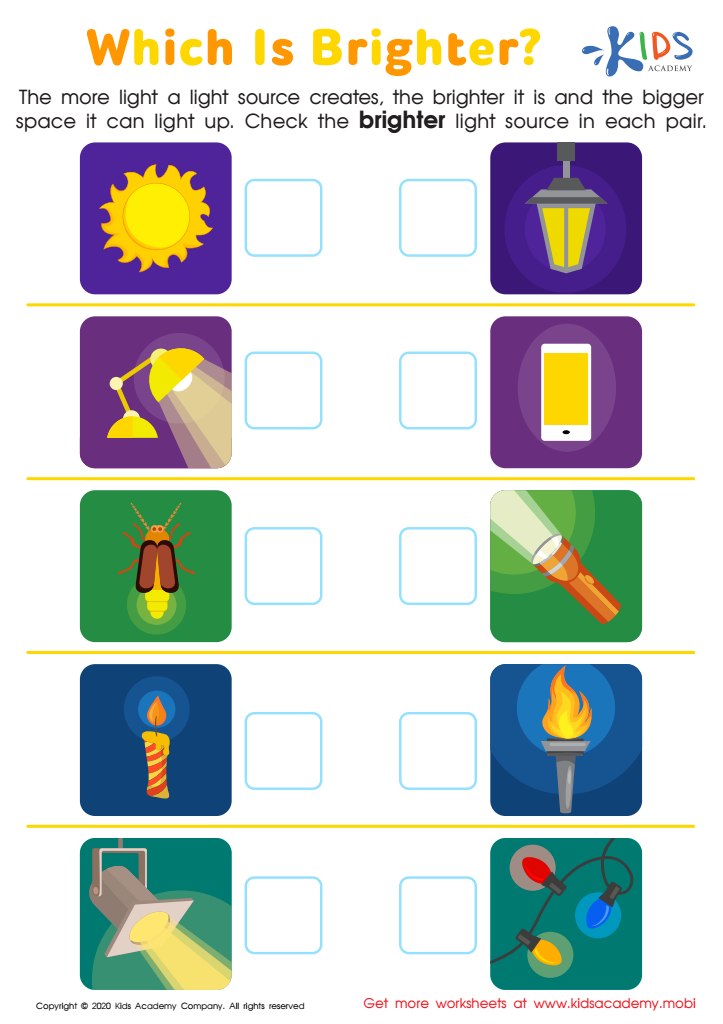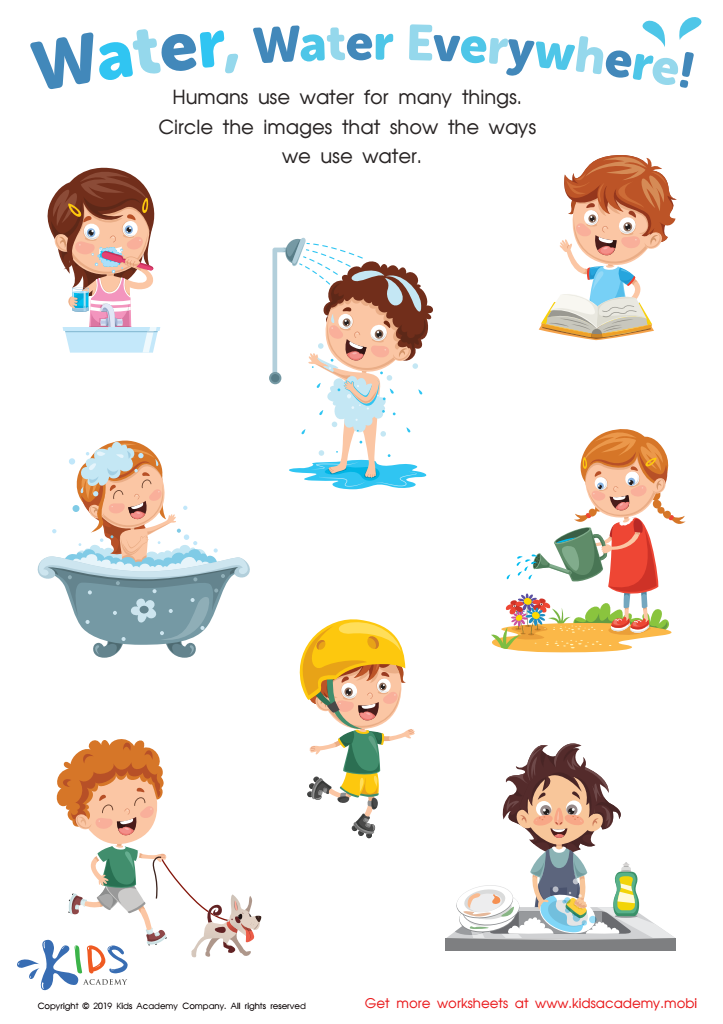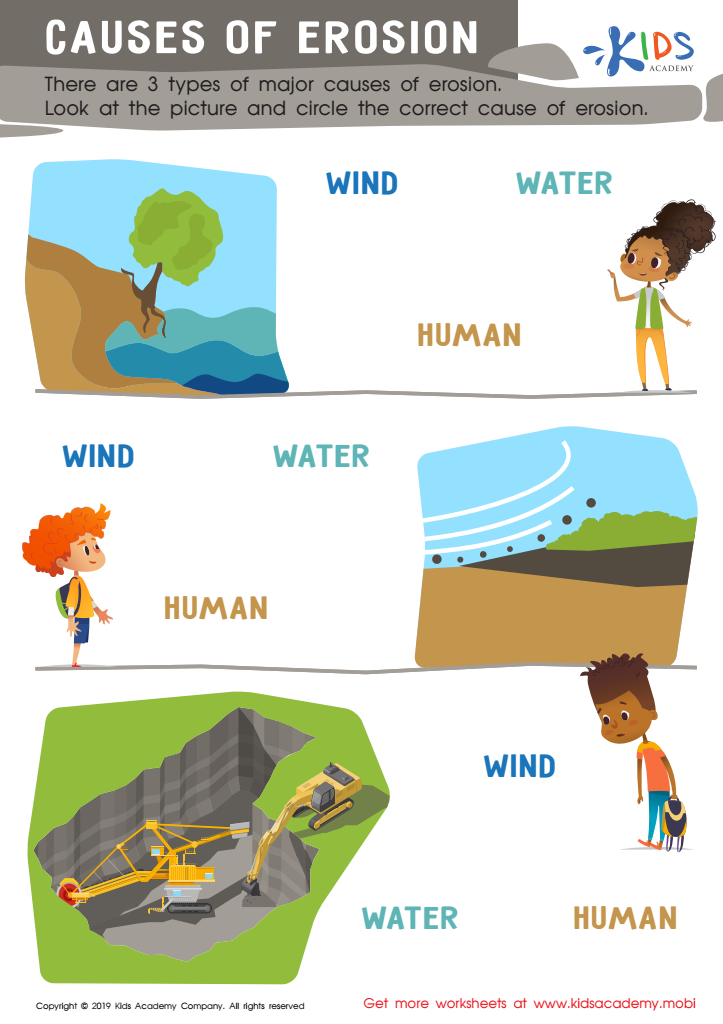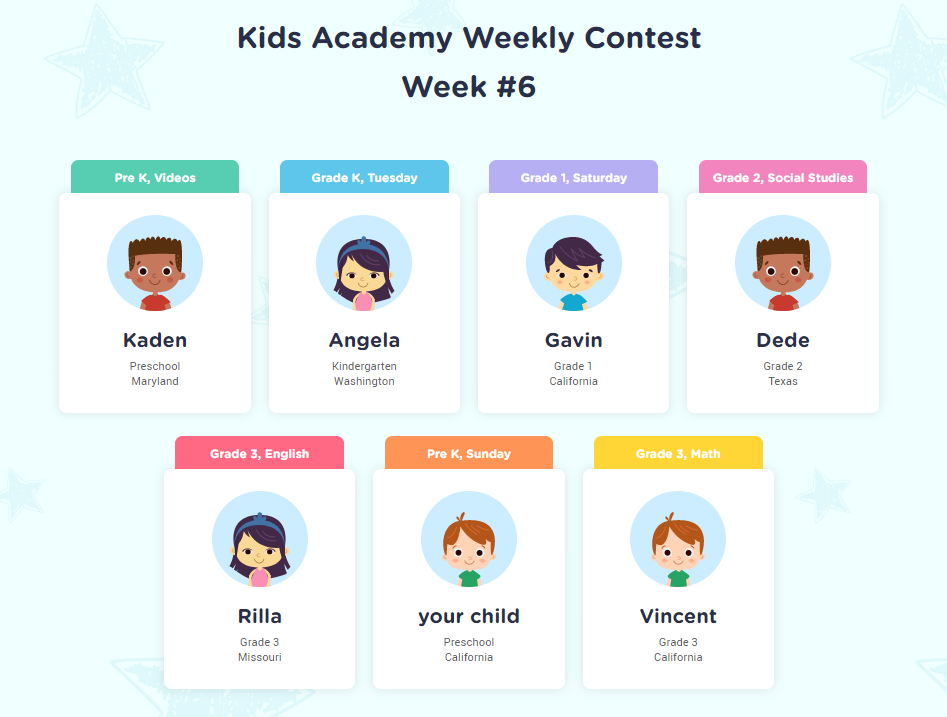Science knowledge application Science Worksheets for Ages 4-7
3 filtered results
-
From - To
Introducing our "Science Knowledge Application Science Worksheets for Ages 4-7," specially designed to make science fun and engaging for young learners. These worksheets help children develop a strong foundation in basic scientific concepts through interactive activities, experiments, and problem-solving tasks. Perfect for classrooms or at-home learning, our resources will ignite curiosity and foster a love for learning. They promote critical thinking and application of knowledge in everyday situations. Equip your young scientists with the tools they need to explore the wonders of the world around them. Start your scientific journey with our enjoyable and educational worksheets today!


Which Is Brighter? Worksheet


Water, Water Everywhere! Worksheet


Causes of Erosion Worksheet
Science knowledge application for children ages 4-7 is crucial for several reasons. Firstly, engaging young minds in science builds a strong foundation for critical thinking and problem-solving skills. At this stage, children are naturally curious and eager to make sense of the world. Introducing them to scientific concepts helps nurture their inquisitiveness and ability to ask questions, laying the groundwork for lifelong learning.
Additionally, early exposure to science fosters a positive attitude towards the subject. When children experience the joy of discovery through hands-on activities, they develop an interest in learning more about how things work. This can increase their motivation and confidence in tackling more complex scientific ideas later in life.
Science knowledge also helps children develop practical life skills. Simple experiments and observations teach them how to follow procedures, make predictions, observe results, and draw conclusions. These skills are transferable to many other areas of study and daily life activities.
Moreover, applying science in everyday life allows children to see the relevance of what they are learning. Whether cooking in the kitchen, planting a garden, or observing wildlife, real-world applications make science tangible and understandable.
In summary, nurturing an early interest in science supports intellectual development, fosters enthusiasm and confidence, teaches practical skills, and connects learning to real-life experiences. Parents and teachers play a critical role in making science both accessible and enjoyable for young children.

 Assign to My Students
Assign to My Students



















